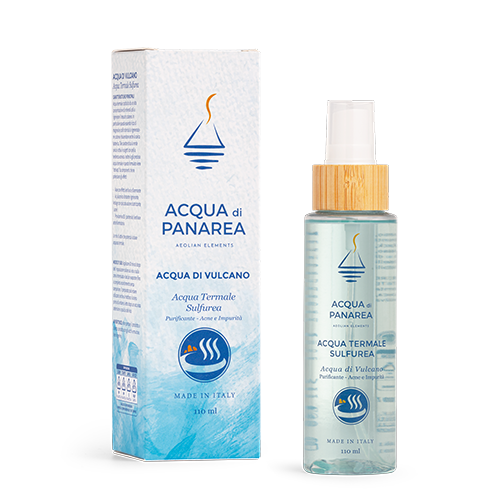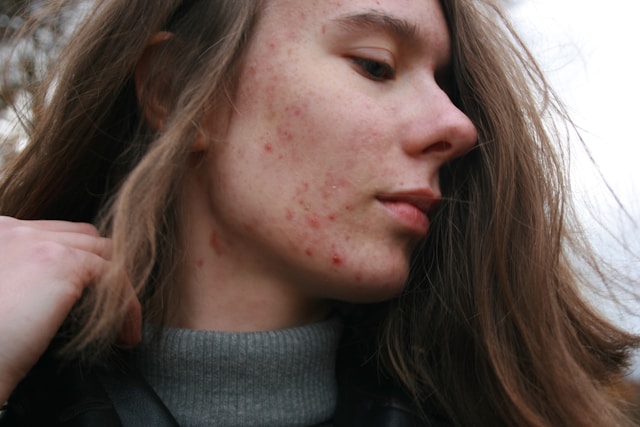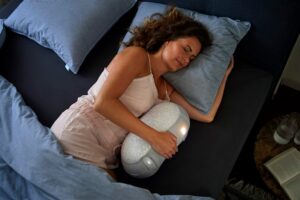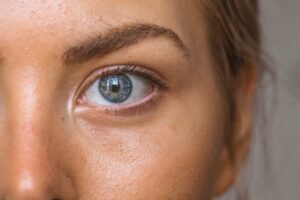Are you looking for solutions for eliminate acne naturally? You are in the right place. Whether it is face or body, we know that this is a problem you want to overcome as soon as possible.
To do this, we begin by understanding what is acne. This is a skin condition that afflicts millions of people worldwide, regardless of age or gender. As you already know, there are several beauty treatments to try to eliminate the problem, but it is also true that there are some natural anti-acne solutions that allow you to avoid the possible side effects of chemicals or more invasive cosmetic treatments.
That is why we are here to point you to several natural methods for Fight acne on face and body. We will discover together how nature can become your ally in the fight against acne, helping you achieve healthier, brighter skin without resorting to invasive treatments.
See also the guide to the best facial cleansers.
What is acne
Acne is a skin pathology characterized by theInflammation and obstruction of hair follicles and sebaceous glands. It manifests mainly in the form of blackheads, papules, pustules and, in severe cases, cysts. Acne can affect different areas of the body, but is occurs most frequently on the face, chest, back, and shoulders.
When talking about acne, one cannot avoid saying that its causes are many. It is, therefore, a multifactorial issue That requires, therefore, targeted intervention on multiple levels.
Among the causes of acne we find the excessive sebum production, l'accumulation of dead cells, i bacteria and theinflammation. Specifically, it is useful to remember that the sebaceous glands produce an excessive amount of sebum, an oily substance that lubricates the skin and hair. If the skin produces too much of it, the risk is to see the much-feared acne appear on the face, or body.
Dead cells can also accumulate in hair follicles, forming a real plug along with sebum, and the bacteria Propionibacterium acnes can proliferate in clogged follicles, causing inflammation and pimple formation.
Inflammation in the body, in response to the situation that arises, can aggravate acne by bringing redness and swelling.
Acne can be affected by various factors including. hormones, as during puberty, the menstrual cycle or theContraceptive use, diet, stress, genetics and use of certain cosmetic products. Although it is not a serious condition, it can have a significant impact on your self-esteem and psychological well-being.
See also our guide on thefacial acne.
How to get rid of acne
The first thing to say if you are wondering. how to get rid of acne is that there are no definitive remedies or cures that are good for everyone and in every situation. There are, however, plenty of treatments that can help control it and improve the appearance of the skin.
Of course, the effectiveness of the treatment will depend on the grackle of the situation, but also on a great many other factors. Therefore, as always, our advice is to first understand your skin type and the causes of acne, so as to find the best natural treatment.
First of all, there are some tips that you can follow and should lay the foundation of your anti-acne skincare routine. First of all, you have to Wash the face twice a day. This helps you remove excess sebum from your skin but also residue from smog and makeup, which can clog pores.
Remember also that dead skin cells can accumulate on the surface of the skin and clog pores, contributing to acne. That's why we recommend afirm but gentle exfoliation, to be carried out at least once a week.
Avoid squeezing pimples, as this can worsen inflammation and increase the risk of scarring and worsening skin condition.
Some studies suggest that a Diet rich in fruits, vegetables and whole grains can help improve acne and the appearance of your face. It would be from eliminate stress, because this condition can make acne worse. Finding healthy ways to manage stress, such as yoga or meditation, can be helpful.
Natural detergents
Acne, with its pimples, blackheads and blackheads, can be a real problem for your skin, undermining health and self-esteem. Fortunately, nature offers us several gentle but effective alternatives to traditional, often aggressive and chemical-laden detergents.
Natural detergents are a real revolution because. do not contain aggressive surfactants which can irritate skin that is already sensitive and inflamed due to acne. Conversely, Gently cleanse without altering the natural balance of the hydrolipidic film And this is an advantage you should never underestimate.
Within these cleaners are often found natural ingredients with Anti-inflammatory, soothing and antibacterial properties, which help reduce redness, calm inflammation and fight the bacteria responsible for acne. This is a benefit not to be underestimated, especially if you are looking for the best performing products against your acne.
Natural detergents are generally well tolerated by all skin types, including those that are sensitive or prone to irritation. Within these cleansers it is helpful that there are ingredients such as thealoe vera, which has soothing and anti-inflammatory properties and helps calm irritated skin and accelerates healing.
Similar to the skin's natural sebum, thejojoba oil regulates its production, helping to prevent clogged pores. In addition, it has moisturizing and nourishing properties.
We also point you to the tea tree oil, which is present in many anti-acne products. Be careful, however, to buy it in the right dilution, as it may prove too aggressive.
A great cleanser for your skin is Vulcan Water, a purifying sulfur thermal water. This product is designed to promote skin regeneration by reducing the bacterial load. The ingredients inside give the skin a cleaner, fresher and more hydrated appearance.

Specifically, within it you will find. aloe, hyaluronan, with moisturizing, regenerating and anti-aging action and with marked healing and provitamin B5, soothing and anti-inflammatory.
What you will need to do is choose a natural cleanser that is suitable for your skin type and use it twice a day, even if you have not applied makeup. Gently massage the product into damp skin and rinse with lukewarm water. Use a natural toner to improve performance and moisturize the skin.
Treatment and drugs
There are also some cures and medications for acne, which serve precisely to improve the appearance of your skin. Dermatology offers a wide range of effective products to combat pimples, blackheads and inflammation, helping you regain healthy, glowing skin.
We start with the retinoids, which are derivatives of vitamin A available both over-the-counter and by prescription. Their Exfoliating and comedolytic action helps unclog clogged pores, reduces sebum production and stimulates cell renewal, improving skin texture and fighting acne.
Also the benzoyl peroxide is a topical antibacterial to consider because it helps you reduce the proliferation of Propionibacterium acnes bacteria, which are responsible for inflammation and pimples. It can be used alone or in combination with other treatments, but it is always good to ask your dermatologist.
We also suggest theazelaic acid, which has excellent antibacterial, anti-inflammatory and lightening properties. Azelaic acid is well tolerated even by sensitive skin. It is effective for mild and moderate acne, particularly for papular-pustular forms and with comedones.
In cases of moderate or severe inflammatory acne, your doctor may prescribe the following topical or oral antibiotics. Antibiotics work by reducing the population of P. acnes bacteria and relieving inflammation. Common topical antibiotics include clindamycin and erythromycin, while tetracyclines and doxycycline are used orally.
The choice of the most appropriate treatment depends on the severity of acne, skin type, and any concomitant medical conditions. It is essential to consult a dermatologist for a personalized evaluation and accurate diagnosis in order to receive an individualized and safe treatment plan.
What not to do in case of acne
Acne, with its blemishes and inflammation, can be really annoying. Therefore, in addition to following specific dermatological cures and treatments, it is important to adopt some Good habits to avoid making the situation worse and promote faster healing.
Don't squeeze pimples. You must resist the temptation to crush them because this practice, while momentarily satisfying, can cause serious damage to the skin, worsening inflammation and increasing the risk of infection and leaving permanent spots and scars.
Hands are a receptacle for bacteria and germs that, if transferred to the face, can clog pores, worsen acne and cause inflammation. Avoid touching your face with unwashed hands And try to keep the hair away from the face.
Remember also that the Comedogenic products are those that tend to clog pores, promoting the formation of pimples and blackheads. Prefer non-comedogenic products, specifically for acne-prone skin, and always check the label to avert the presence of petrolatum, lanolin and some oils such as coconut oil.
Don't go overboard with detergents, because excessive washing of the face can paradoxically worsen acne. Cleansing the skin twice a day with a gentle, nonaggressive cleanser is sufficient to remove dirt, sebum, and makeup without irritating the skin.
There is no scientific evidence linking specific foods to acne. However, it is important to eat a healthy, balanced diet rich in fruits, vegetables, whole grains, and lean proteins to provide the skin with the nutrients it needs for good health.
The importance of nutrition and lifestyle
Acne, with its pimples, blackheads and blackheads, is not only a cosmetic problem, but can negatively affect your psychological well-being and quality of life.
While dermatology offers you various treatments and even effective drugs, thenutrition and lifestyle play a major role in determining the onset, severity, and course of acne.
A'healthy and balanced nutrition, rich in fruits, vegetables, whole grains and lean proteins, provides the body with essential nutrients for healthy skin. In contrast, Excessively fatty, sugary and refined foods can increase sebum production, clog pores and promote inflammation, worsening acne.
In addition to diet, lifestyle has a significant impact on skin health. Get enough sleep, manage stress with relaxation techniques, avoid smoking e practice regular physical activity are all factors that help to maintain healthy skin and fight acne.
It is important to emphasize that there are no "miracle" foods or universal diets to cure acne. This means that of course the effect of each food may vary from person to person, but it is always helpful to maintain a healthy diet and lifestyle so as to minimize the chances of further dermatological problems occurring.
Frequently asked questions on how to get rid of acne
Several factors can worsen acne, including diet, with fatty, sugary and refined ccibi that can increase sebum production and clog pores. Stress, which triggers hormones that increase sebum production and inflame the skin, can also be a trigger. Similarly, smoking, lack of sleep, and comedogenic products can be. Lack of sleep worsens acne because the skin does not have enough time to regenerate during insufficient sleep. Dirty hands, imvece, make it worse because they transfer bacteria that can clog pores and cause inflammation.
To treat acne you need to choose the right products for your skin. But not only that. Following a proper skincare routine is the basis of everything. Wash your face twice a day with a nonaggressive cleanser suitable for your skin type. Avoid using water that is too hot or scrubbing your skin vigorously. Apply a mild toner to help balance your skin's pH and remove any residual cleanser. Use a noncomedogenic moisturizer suitable for your skin type, even if you have acne-prone skin. Moisturization is important to keep your skin healthy and prevent peeling. Apply sunscreen with a high SPF (SPF 30 or higher) every day to protect your skin from sun damage, which can make acne worse.
The duration of acne depends mainly on the type and the causes that trigger it. Either way it ranges from a few months to years, which is why it is important to use the best products and manage the situation with a dermatologist in severe cases.




